The new power of philanthropy featuring Henry Timms
Transcript
[The new power of philanthropy. Henry Timms, president and CEO, Lincoln Center. Co-creator, Giving Tuesday. A white man with brown hair and glasses, wearing a gray collared shirt and black pants.]
ANNOUNCER: Please welcome Henry Timms.
[applause]
HENRY TIMMS: So, there has been a lot of conversation recently, and rightly, about the dangers of concentrated power and concentrated philanthropy—what I would call “the old power” of philanthropy. But I want to expand that conversation today and talk to you for the next five minutes about the opportunities we see in distributed power, in distributed philanthropy. If part of the problem is power gets held up in too many places, and surely part of the solution is something we have not spent a lot of time on as a sector, which is how do we supercharge everyday giving? How do we supercharge civic participation? How do we ensure that the route to justice is via participation by more people and more voices? Over the last seven years, I’ve been working with people around the world on a project called Giving Tuesday, which lives this spirit. And the idea was simple. Black Friday. Cyber Monday. Giving Tuesday. A chance for people everywhere to flip consumerism on its head and, instead of consuming, think about how you give back. And Giving Tuesday now has raised over a billion dollars online in this country alone. The average gift size is $100. Four and a half million people took part in the UK. There were 250 events in cities around Russia this year. And as we approach Giving Tuesday this year, on military bases across the country, Giving Tuesday is coming alive. There are kids now who are challenging other kids to get to a million kids to participate this year. There’s been an extraordinary story about what happens when everyday giving is prioritized just in the way that concentrated giving has been focused on so far. And there are three really big lessons that I have learned from the Giving Tuesday community that I think are relevant as we think about this new gospel of wealth—what it might be, how we might build it, how we might share it. And I wanted to share the three lessons that I have learned from Giving Tuesday with you today.
The first is this. We, as a sector, have to be prepared to put mission over brand. When we think how much of our impact is limited with the confines of the credit we want for ourselves. How often it is that we want to do something in the world, but we want to make sure that we get the credit for the thing that we’ve done, in a meaningful way. How many conversations have you had in the office that are about your logo size, rather than the impact of the work? How far would Giving Tuesday have spread if the powers that be at the 92nd Street Y, where I was working, had insisted that we call it “The 92nd Street Y’s Giving Tuesday”? It would have gone nowhere. So, as we think about philanthropy more generally, we hear a lot of people talking about spending down endowments. But are we prepared to talk about how we spend down our power? Are we prepared not just to say we want to empower people, but think about how we ourselves become less powerful. The second thing is about the kind of leaders we encourage. Giving Tuesday has grown so much—not because some lone individual whose personal journey reaches a crucible and, through an insight of their own genius, leads a group of people to solve a problem. That’s the kind of stereotype of the social change figures we have encouraged over the years. And many of them have done extraordinary work. But the kind of people who have driven things like Giving Tuesday are typically very low ego, they’re typically very collaborative, they’re people who are good at bringing together groups of other people.
And so, I would encourage us all to think about, as we think about this new gospel of wealth, how do we shift the focus from, as a sector, all of us focusing on those superstars and instead focus on superconductors. Not those people who absorb the light, but those people who are capable of spreading the light of others. And then, finally, I think there is a big challenge to all of us as institutions. Whether you’re a big foundation, whether you run a performing arts center, whether you are a government agency, the great story of our age is that people don’t trust institutions. We hear that time and time again. I would argue the reason people don’t trust institutions is because institutions don’t trust people. Actually, what happens is these big institutions amass so much for us they don’t offer people meaningful ways to participate. They don’t offer people ways to engage in straightforward, frictionless, and rewarding ways. You go to the DMV to get a license. You try and vote in many places across this country. You try and give money. You try and participate civically.
So, as I think, as we build this great new gospel of wealth, we bring this community together to think about how we shift from generosity to justice, one of the framing ideas of this new gospel must be this. It must be, this can’t be a conversation about more institutions developing bigger congregations for themselves. It has to be a conversation about all of us driving more participation from more people, in more places, on their terms, and not ours. Thank you.
[applause]
[New gospel of wealth. What does #GenerosityToJustice look like to you? Ford Foundation dot org forward slash new gospel.]
Accessibility Statement
- All videos produced by the Ford Foundation since 2020 include captions and downloadable transcripts. For videos where visuals require additional understanding, we offer audio-described versions.
- We are continuing to make videos produced prior to 2020 accessible.
- Videos from third-party sources (those not produced by the Ford Foundation) may not have captions, accessible transcripts, or audio descriptions.
- To improve accessibility beyond our site, we’ve created a free video accessibility WordPress plug-in.
Henry Timms, president and CEO of Lincoln Center, on how generosity supercharges democracy and what that means for all of us.
“As we think about philanthropy, we hear a lot of people talking about spending down endowments. But are we prepared to talk about how we spend down our power? … Not just to say we want to empower people, but think about how we ourselves become less powerful.”
– Henry Timms
Learn more about New Gospel of Wealth
Other videos in this series
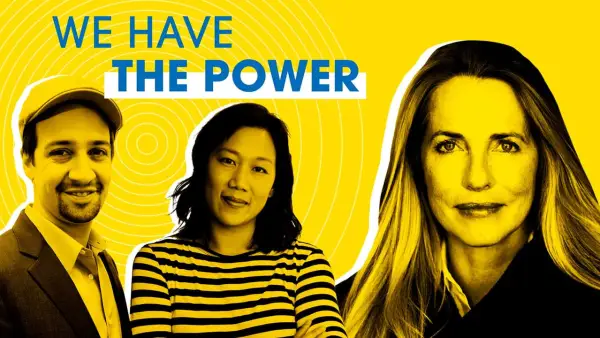
Let’s rethink giving
How can we reimagine philanthropy so that we create a future where there is justice and dignity for all? What are the root causes of the issues and how do we encourage the participation of many and not just a few?
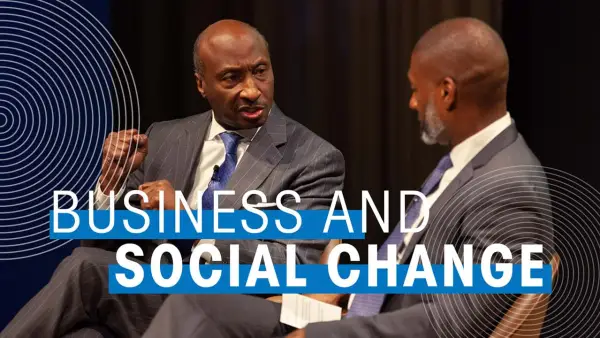
The business of justice featuring Kenneth Frazier and Charles Blow
Kenneth Frazier, CEO of Merck and Co, believes one of the greatest injustices in our society is the health disparities experienced by women of color. A zip code is more likely to determine health outcomes than genetic code. Frazier uses philanthropy to address mortality rate and wants to see more medical personnel listen to their women patients and patients of color.
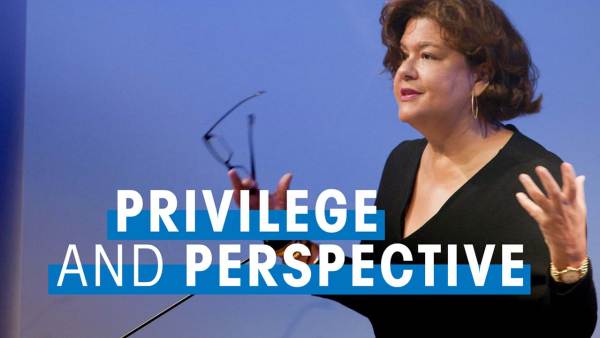
The privilege of perspective featuring Elizabeth Alexander
Elizabeth Alexander, president of the Andrew W. Mellon Foundation, on art, activism, and acknowledging adversity.
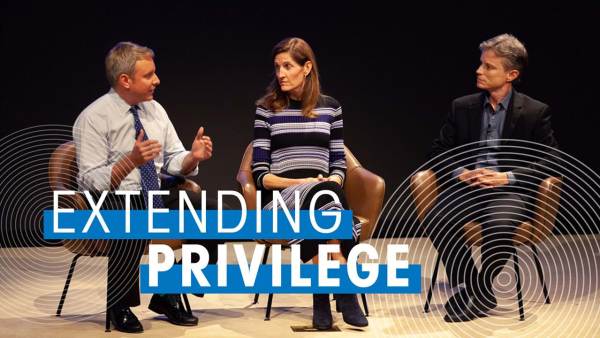
Extending privilege featuring Valerie Rockefeller and Henry Ford III
Henry Ford III, trustee of the Ford Foundation, and Valerie Rockefeller, chair of the Rockefeller Brothers Fund, discuss transforming philanthropy for the 21st century. The families have seen the value of impact investing and believe in partnerships to increase the difference that can be made.
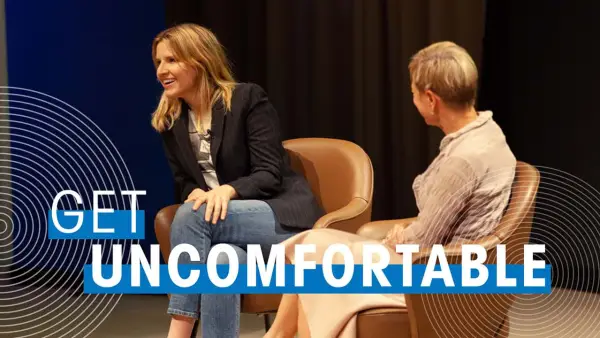
Getting proximate featuring Tara Westover and Hilary Pennington
Tara Westover, author of “Educated,” sees a disconnect between the rural and urban parts of the United States. She believes philanthropists need to be more proximate to the issues they care about, and that spending time with people who aren’t like you is key to disrupting inequality.
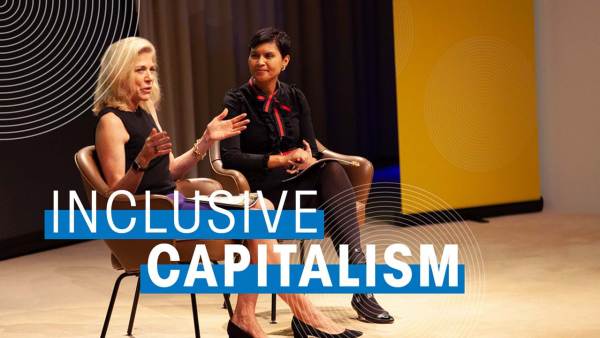
Can capitalism ever really be inclusive? featuring Lynn Forester de Rothschild and Stephanie Mehta
The top 1 percent of the United States controls 42 percent of the national wealth. Lynn Forester de Rothschild, founder of the Center for Inclusive Capitalism, explains that reimagining the economy and making it a sustainable, inclusive system that leads to strong economic growth requires reform.
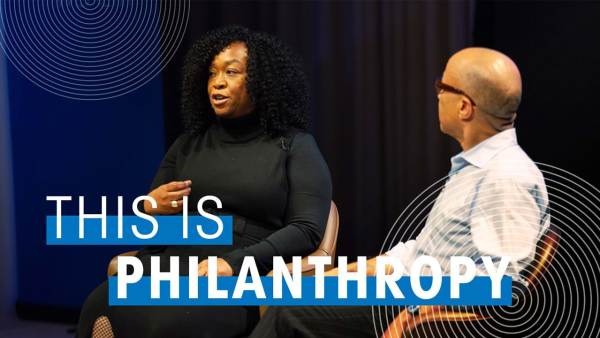
This is what a philanthropist looks like featuring Shonda Rhimes and Darren Walker
Writer and producer Shonda Rhimes has seen the power storytelling has to make change through her work, which centers marginalized people and issues. Rhimes believes philanthropy sets an example others can follow, and says supporting organizations that are already on the ground doing the work is key.
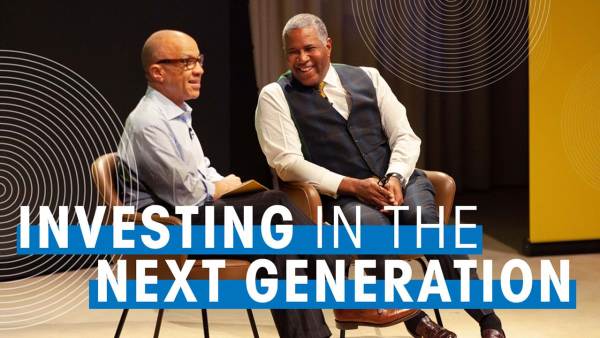
Catalyzing the potential of our time featuring Robert Smith and Darren Walker
Through philanthropy, Robert Smith, CEO of Vista Equity Partners, has alleviated the burden of student debt for a graduating class. He says private philanthropy can help address public policy challenges, such as student loan debt, and is a disruptive opportunity that liberates people to contribute to society in positive ways.
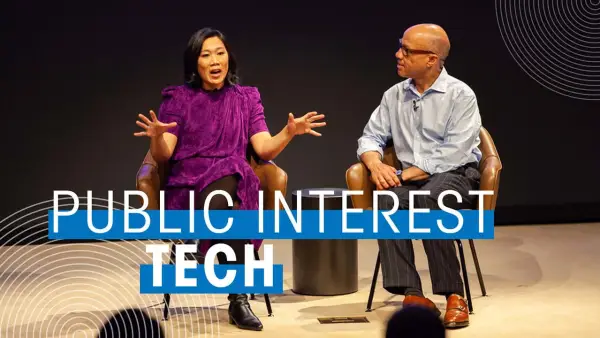
Tech funders changing philanthropy featuring Priscilla Chan & Darren Walker
The top 1 percent of the United States controls 42 percent of the national wealth. Lynn Forester de Rothschild, founder of the Center for Inclusive Capitalism, explains that reimagining the economy and making it a sustainable, inclusive system that leads to strong economic growth requires reform.
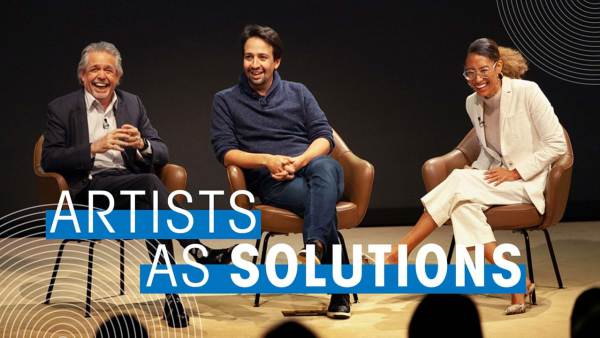
Why artists shouldn’t stay in their lane featuring Lin-Manuel Miranda, Luis Miranda Jr. and Elaine Welteroth
Composer and actor Lin-Manuel Miranda believes all art is political. He and his father, Luis A. Miranda Jr. of the MirRam Group, see the value philanthropy has to empower communities that may have been neglected, and allow them to share their stories through the arts, like Puerto Rico did after Hurricane Maria.
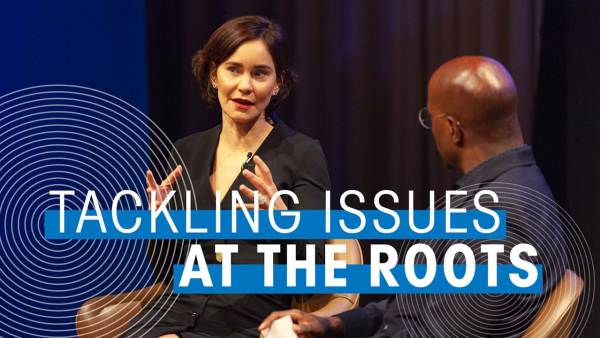
Good philanthropy needs government featuring Laura Arnold and Van Jones
Laura Arnold, co-chair of Arnold Ventures, believes policy change is the lever that will lead to sustainable change. She says we need to attack the systems that are creating the injustices we see, like criminal justice. Philanthropy can create better alternatives that governments can adopt.
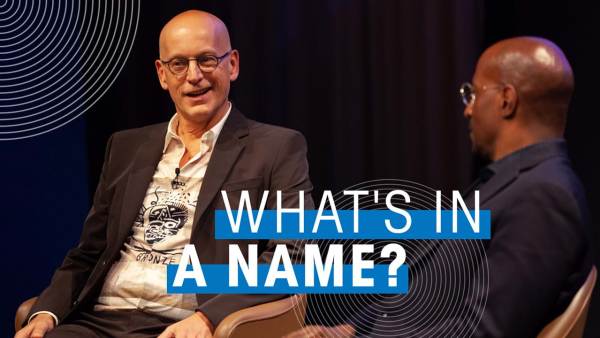
The power of a name featuring Jon Stryker and Van Jones
As a philanthropist, Jon Stryker, president of the Arcus Foundation, believes the act of naming gives power and influence to the work that is supported through his gifts. His philanthropy supports those on the frontlines of justice, providing resources and power to those who need it most.
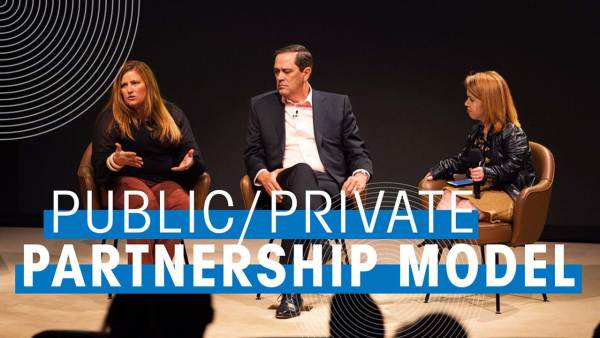
Public-private partnership: A new model for lasting impact featuring Jennifer Loving and Chuck Robbins
Jennifer Loving, CEO of Destination: Home, says a public-private partnership, like the one between her nonprofit and Cisco, headed by Chuck Robbins, can help create a model for the future of philanthropy, and tools like social bonds can help address some of the biggest crises of our time.
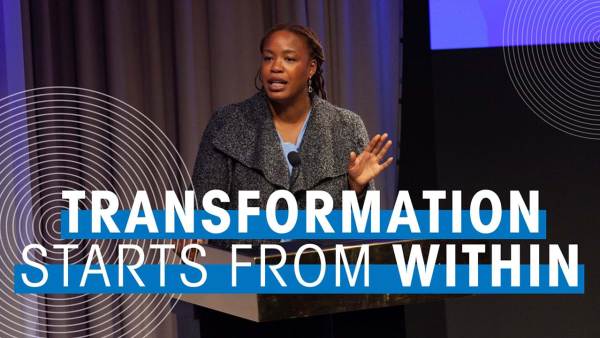
Transforming organizations from the inside featuring Heather McGhee
Heather McGhee, distinguished senior fellow at Demos, shares her experience of working to make the Demos think tank more diverse and led by people of color. Institutional racism, however slight, drives inequality, she says, so transformation needs to be a must-have and not a nice-to-have.
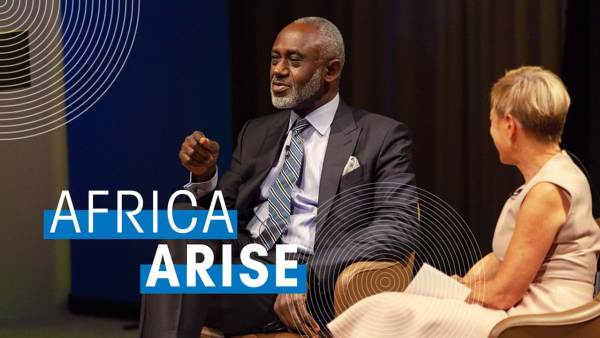
Africa, your time is now featuring Gbenga Oyebode and Hilary Pennington
Ford Foundation trustee Gbenga Oyebode has seen the value of impact investing on the African continent. He believes philanthropy should not just be giving, but investing with a social impact and an economic return. Giving is inherently part of African culture, but needs to be more strategic and collaborative.
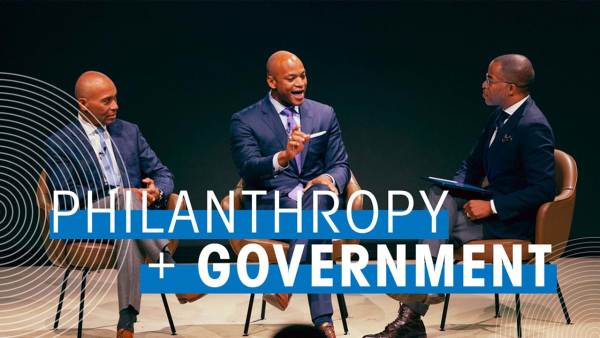
Why good government needs philanthropy featuring Deval Patrick and Wes Moore with Jonathan Capehart
Wes Moore, CEO of Robin Hood, and Deval Patrick, managing director of Bain Capital, see philanthropy working hand-in-hand with government in the fight for equality. Philanthropy can often provide the initial capital needed while government can take over and scale the solution.
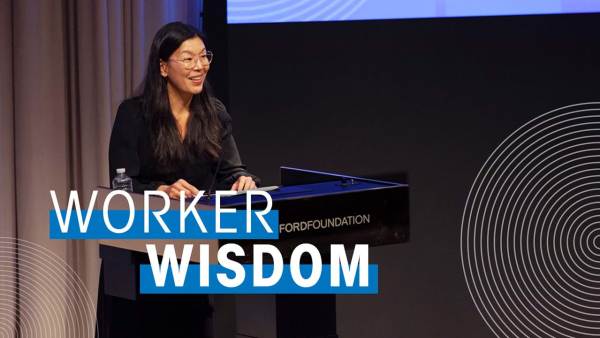
Bringing hidden labor to light featuring Ai-Jen Poo
Ai-jen Poo, executive director of the National Domestic Workers Alliance, says the sector of caregivers and domestic workers continues to grow. Building a future of work that works for all is centered on justice-based philanthropy and not a generosity model.
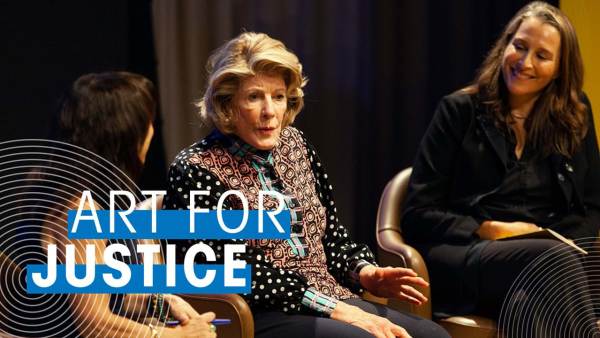
Art for Justice featuring Agnes Gund and Catherine Gund with Maria Hinojosa
The Art for Justice fund was created to help end mass incarceration. Founder Agnes Gund says philanthropy is about addressing issues like this. Catherine Gund believes art has an important part to play in the fight for racial justice and can help change the policies that led to mass incarceration.
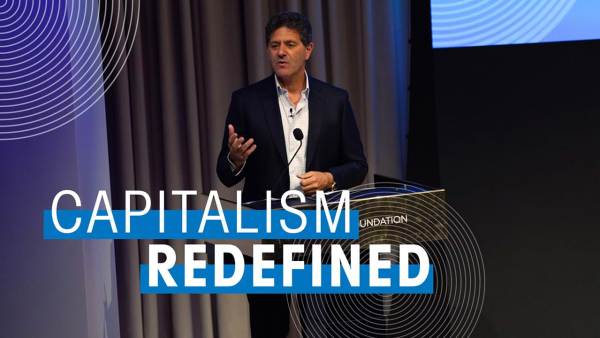
Capitalism redefined featuring Nick Hanauer
Entrepreneur Nick Hanauer asks us to reimagine the economy. He believes we need to change our beliefs about the economy to create a more just, more equitable society for all. By choosing better economic beliefs, we can change society for good.
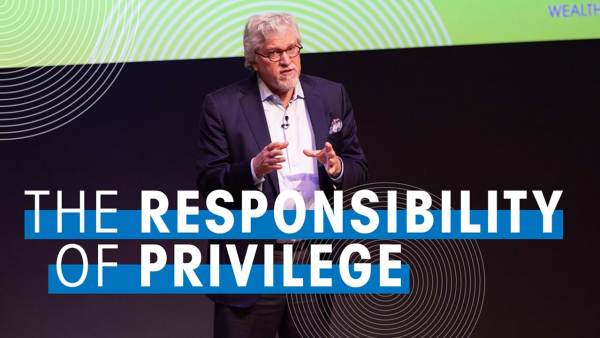
On using power and privilege for change featuring Jeff Raikes
Jeff Raikes, co-founder of the Raikes Foundation, says dismantling racism requires philanthropy to ditch its colorblind approach. People in power need to acknowledge that privilege is invisible to those who possess it. Privilege and power need to be transformed into a force for changing our society for the better.